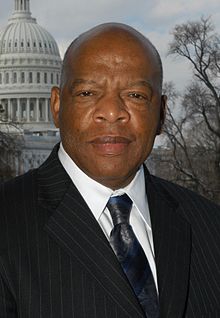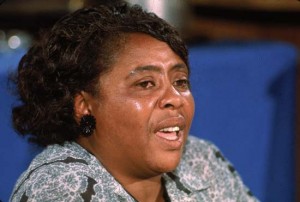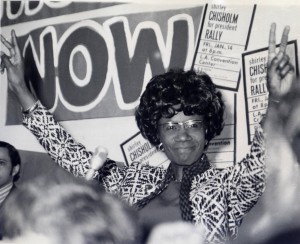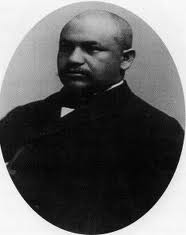John Lewis

John Robert Lewis, (born February 21, 1940, Troy, Alabama, U.S. — died July 17, 2020, Atlanta, Georgia), American civil rights leader and politician best known for his chairmanship of the Student Nonviolent Coordinating Committee (SNCC) and for leading the march that was halted by police violence on the Edmund Pettus Bridge in Selma, Alabama, in 1965, a landmark event in the history of the civil rights movement that became known as “Bloody Sunday.” 1
Lewis left the SNCC in 1966 and continued his work to enfranchise minorities. In 1970, he became director of the Voter Education Project. During his tenure, the VEP helped to register millions of minority voters.
Lewis won a seat on the Atlanta City Council in 1981, then the House of Representatives in 1986. As a representative of Georgia’s 5th District until his death, he was one of the most respected members of Congress. He championed healthcare reform, education improvements and he oversaw multiple renewals of the Voting Rights Act. When the Supreme Court struck down part of the law in 2013 Lewis decried the decision as a “dagger into the heart” of voting rights.
>>> Read More HERE at Biography.
1Encyclopedia BrittanicaShirley Chisholm
Nation of Islam
 The Nation of Islam was founded in Detroit, Michigan in July, 1930 by Wallace Fard Muhammad, also known as W. D. Fard Muhammad (1877–1934). The N.O.I. teaches that W. Fard Muhammad is both the “Messiah” of Judaism and the Mahdi of Islam. Within one year, he had approximately 25,000 followers who knew him as Prophet W.D. Fard, at Mosque of Islam #1.
The Nation of Islam was founded in Detroit, Michigan in July, 1930 by Wallace Fard Muhammad, also known as W. D. Fard Muhammad (1877–1934). The N.O.I. teaches that W. Fard Muhammad is both the “Messiah” of Judaism and the Mahdi of Islam. Within one year, he had approximately 25,000 followers who knew him as Prophet W.D. Fard, at Mosque of Islam #1.
Fard’s assistant minister Elijah Muhammad succeeded him as head of the movement in 1934. Because of dissension within the Detroit temple, he moved to Chicago where he established Mosque No. 2. During World War II, he advised followers to avoid the draft, as he said the US did nothing for blacks. He was charged and convicted of violating the Selective Service Act and was jailed (1942–46). (more…)
Dr. Matthew Ricketts
Congressional Black Caucus
Since its establishment in 1971, the Congressional Black Caucus (CBC) has been committed to using the full Constitutional power, statutory authority, and financial resources of the federal government to ensure that African Americans and other marginalized communities in the United States have the opportunity to achieve the American Dream. As part of this commitment, the CBC has fought for the past 48 years to empower these citizens and address their legislative concerns by pursuing a policy agenda that includes but is not limited to the following:
- reforming the criminal justice system and eliminating barriers to reentry;
- combatting voter suppression;
- expanding access to world-class education from pre-k through post-secondary level;
- expanding access to quality, affordable health care and eliminating racial health disparities;
- expanding access to 21st century technologies, including broadband;
- strengthening protections for workers and expanding access to full, fairly-compensated employment;
- expanding access to capital, contracts, and counseling for minority-owned businesses; and
- promoting U.S. foreign policy initiatives in Africa and other countries that are consistent with the fundamental right of human dignity.
For the 116th Congress, the CBC has a historic 55 members of the U.S. House of Representatives and the U.S. Senate, representing more than 82 million Americans, 25.3 percent of the total U.S. population, and more than 17 million African-Americans, 41 percent of the total U.S. African-American population. In addition, the CBC represents almost a fourth of the House Democratic Caucus.
The CBC is engaged at the highest levels of Congress with members who serve in House leadership. Representative James E. Clyburn (D-SC) serves as the Majority Whip in the House of Representatives, Representative Hakeem Jeffries (D-NY) serves as Chairman of the House Democratic Caucus and Representative Barbara Lee (D-CA) serves as co-chair of the House Democratic Steering and Policy Committee. In addition, five CBC members serve as chairs on full House committees, and 28 CBC members serve as chairs on House subcommittees.
While the CBC has predominately been made up of members of the Democratic Party, the founding members of the caucus envisioned a non-partisan organization. Consequently, the CBC has a long history of bipartisan collaboration and members who are both Democrat and Republican.
As founding member Rep. William L. Clay, Sr. said when the CBC was established, “Black people have no permanent friends, no permanent enemies…just permanent interests.”



